Economic crime and illicit finance in Russia’s occupation regime in Ukraine
David Lewis
To know more, read the full report here.
Despite Ukraine's ongoing counteroffensive, as of September 2023 Russia still controlled around 17% of Ukrainian territory, an area roughly the size of Denmark. Russia maintains this occupation through a robust scheme for territorial consolidation that uses a combination of violent repression and nuanced economic strategies. This paper seeks to unpack Russia’s multilayered economic manipulations in these areas, advocating intensified global scrutiny and action against these activities, which are both illicit and potentially criminal under international law.
When Russia forcefully took over swathes of southeastern Ukraine in March 2022, it quickly began integrating these territories into its own economic framework. This “economic occupation” manifests itself in several activities that are illegal under Ukrainian law and may also constitute war crimes internationally. They include:
There's an urgent need for these economic violations to gain global attention, with explicit consequences communicated to Russian businesses involved in them. Though sanctions have been imposed on various officials in the occupation administration, a more cohesive and punitive approach would amplify the consequences for Russia's occupation, ultimately supporting Ukraine's efforts for post-war recovery and legal reconciliation.
When Russia forcefully took over swathes of southeastern Ukraine in March 2022, it quickly began integrating these territories into its own economic framework. This “economic occupation” manifests itself in several activities that are illegal under Ukrainian law and may also constitute war crimes internationally. They include:
- The forceful appropriation of numerous Ukrainian enterprises, rebranding them as Russian while replacing the management;
- The compulsory implementation of the Russian currency, financial and taxation system, alongside the closing of Ukrainian financial institutions;
- The forcible takeover of farms and coercing farmers to yield to the occupation authority’s demands, including the unlawful export of Ukrainian grain;
- Rebuilding cities like Mariupol, destroyed by Russian forces, through expensive state-led projects that profit Russian firms with close ties to the government.
There's an urgent need for these economic violations to gain global attention, with explicit consequences communicated to Russian businesses involved in them. Though sanctions have been imposed on various officials in the occupation administration, a more cohesive and punitive approach would amplify the consequences for Russia's occupation, ultimately supporting Ukraine's efforts for post-war recovery and legal reconciliation.

Nevsky micro-district
A new apartment complex in the Nevsky Microdistrict constructed by Olympsitistroy, under contract with VSK, in western Mariupol. By 2023, there were already families living in the apartments, which had become a showcase for Russian official visitors.
Source: VK
A new apartment complex in the Nevsky Microdistrict constructed by Olympsitistroy, under contract with VSK, in western Mariupol. By 2023, there were already families living in the apartments, which had become a showcase for Russian official visitors.
Source: VK
Enhanced global focus could facilitate Ukraine's future reintegration of these regions. Establishing a record of property usurpations and economic misdeeds could inform post-war legal processes and underpin sanctions or future legal action. For the people living under Russian control, the economic dimension of the occupation also makes for tough questions about transitional justice, challenging Ukraine to define and deal with wartime collaboration. Here, international experiences could offer valuable insight into legal and societal approaches that balance the scales of justice with the goal of uniting Ukrainian society post-conflict.
The narrative of Russia's military occupation often overshadows the economic exploitation underlying it. Russia's occupation is propped up by a vast, corrupt financial network. This includes imposing the Russian banking system, reversing trade routes, and flooding the market with Russian business and businessmen. Russian military and civilian actors have not only seized assets but have also indulged in large-scale looting, exacerbating the economic stranglehold.
This multifaceted occupation has implications for Russia's continued control and Ukraine's eventual recovery. Economically, Russia has managed to align local elites and businessmen with its regime, not necessarily out of loyalty but due to fear and the allure of profit. The occupation structure distributes new streams of income to Russian oligarchs, creating vested interests in the ongoing occupation. Moreover, the occupied territories now play a critical role in a broader web of international illicit finance, which is becoming a cornerstone of Russian foreign policy.
The illegal seizures of assets could constitute war crimes, adding to the complex legal aftermath should Ukraine regain control. How Ukraine handles these instances of economic collaboration will be crucial for the reintegration of these territories.
Enhanced monitoring and systematic sanctions by the international community would support Ukraine's post-occupation recovery, addressing the intricate legal issues that are bound to arise. A publicly accessible and thoroughly documented database of economic crimes would be instrumental in legal proceedings and defining sanctions, ensuring a foundation for justice and property rights in post-war Ukraine.
The narrative of Russia's military occupation often overshadows the economic exploitation underlying it. Russia's occupation is propped up by a vast, corrupt financial network. This includes imposing the Russian banking system, reversing trade routes, and flooding the market with Russian business and businessmen. Russian military and civilian actors have not only seized assets but have also indulged in large-scale looting, exacerbating the economic stranglehold.
This multifaceted occupation has implications for Russia's continued control and Ukraine's eventual recovery. Economically, Russia has managed to align local elites and businessmen with its regime, not necessarily out of loyalty but due to fear and the allure of profit. The occupation structure distributes new streams of income to Russian oligarchs, creating vested interests in the ongoing occupation. Moreover, the occupied territories now play a critical role in a broader web of international illicit finance, which is becoming a cornerstone of Russian foreign policy.
The illegal seizures of assets could constitute war crimes, adding to the complex legal aftermath should Ukraine regain control. How Ukraine handles these instances of economic collaboration will be crucial for the reintegration of these territories.
Enhanced monitoring and systematic sanctions by the international community would support Ukraine's post-occupation recovery, addressing the intricate legal issues that are bound to arise. A publicly accessible and thoroughly documented database of economic crimes would be instrumental in legal proceedings and defining sanctions, ensuring a foundation for justice and property rights in post-war Ukraine.
-
David Lewis
University of Exeter
